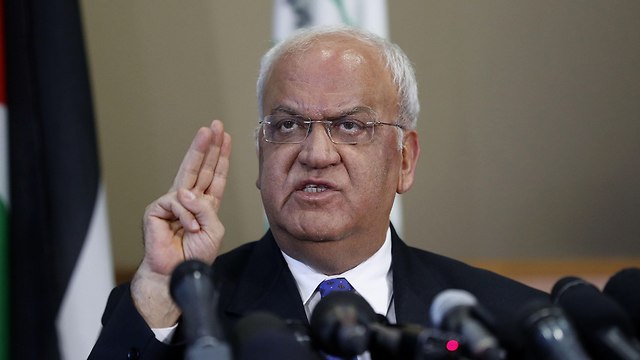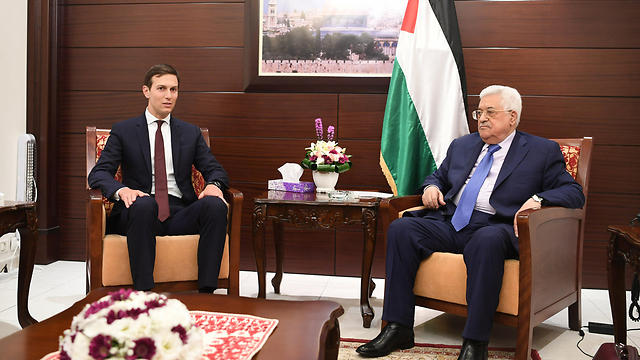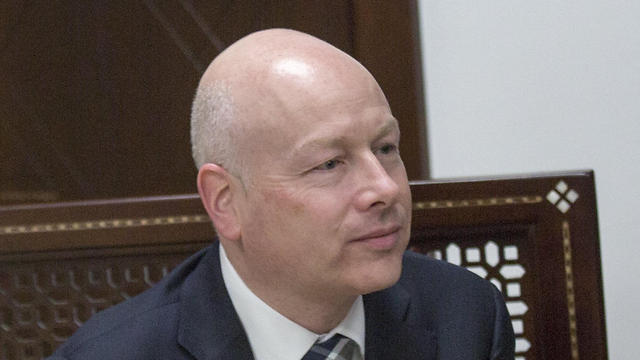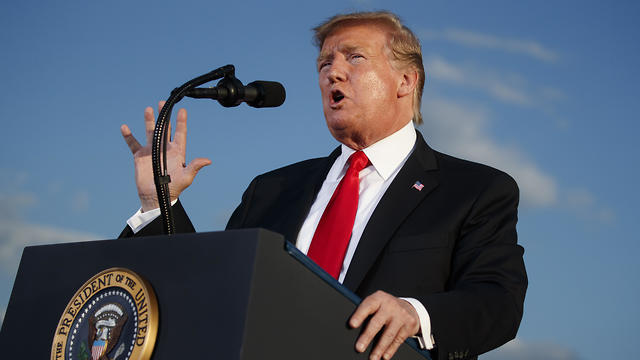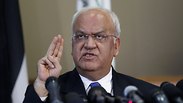

Palestinians slam countries participating in U.S.-engineered Bahrain 'workshop'
PLO's secretary-general, Saeb Erekat, goes on media blitz, urging the states that are due to attend the June conference - meant to serve as the first part of Trump's long-delayed Middle East peace plan - to 'reconsider' their decision
Saeb Erekat, executive secretary of the Palestine Liberation Organization, told a number of Arab news outlets he expected the summit to fail.
In an interview with Almayadeen, a Lebanese news channel, he said: “If I’m not going, do you know what’s best for me better than I do?” He called on all Arab and non-Arab countries that intend to participate to “reconsider” their decision.
The Palestinians officially announced last week they will not attend the June 25-26 conference, meant to serve as the first part of President Donald Trump's long-delayed Middle East peace plan, dubbed “the deal of the century.”
Political analyst Ziad Abu Zayyad said the “PA is on its own,” adding: “These countries have their own interests to worry about with the United States, and they revolve in the U.S. orbit, so it doesn’t come as a surprise that these countries have agreed to attend and host the conference.”
Abu Zayyad said that other geopolitical issues in the region played a major role in how Arab governments, particularly the Gulf states, viewed the Palestinian cause these days.
“America and Israel succeeded in convincing these countries that the danger to them is coming from Iran, and because of that they will do anything they are asked by the U.S. and Israel,” he said.
The Palestinian Authority did not have the means to pressure the Arab states, he added.
Saudi Arabia, the United Arab Emirates and Qatar have publicly declared that they will attend, along with the Bahraini hosts. The U.S. has also sent invitations to finance ministers from other Arab and non-Arab countries. The so-called workshop is scheduled to be held in the city of Manama.
Hussein Ibish, a senior resident scholar at the Arab Gulf States Institute in Washington, said the Americans had a number of goals they wanted to achieve at the conference.
“First, they want to create a set of inducements that will force Palestinians to take the political component of the plan seriously. That’s not going to work, but that was their theory,” Ibish said.
“Second,” he added, “they want to appeal directly to the Palestinian business community, over the heads of the national political leaders. This is part of a broader effort to speak to the (Palestinian) public directly, thereby ‘going around’ the politicians. Finally, they want to bring Israel and the Gulf Arab countries closer together.”
But many prominent Palestinian businesspeople have publicly rejected the U.S. invitation to attend.
Ibish said the Trump Mideast peace team, headed by his son-in-law Jared Kushner and chief Middle East adviser Jason Greenblatt, was trying to “create an alternative leadership with which they can do business.” He countered that the leaders of the American team “don’t seem to understand Palestinian social and political realities.”
Ibish went on to say that despite the White House’s efforts, this conference would only highlight how complex the conflict was, something that makes it impossible to achieve anything without the participation of the Palestinians.
“In the end, I don’t think it will change much either way on Israeli-Gulf Arab relations. It’s not going to help much, but it certainly won’t hurt. But it may show how difficult it is for Gulf Arabs to get closer to Israel without seriously dealing with the Palestinian issue, and there is no possible way of doing that under the current circumstances,” Ibish said.
For the wealthy Gulf states, attending the talks was a win-win proposition, he stated.
“I think it’s an easy way to curry favor with Washington and explore what’s possible with Israel under the guise of trying to help Palestinians. But it’s very important that they are sure that this isn’t going to work, so that whatever they pledge financially will be all in theory. I understand why they’re doing this. It’s pretty much cost free, politically and financially, because it’s obvious that there is no possibility that the political components for implementing any of these initiatives will be created,” Ibish insisted.
“So you can go to such a meeting and pledge billions of dollars, say you’re trying to help the Palestinians – which might be true – and yet be sure that you will never be called on to pay for those things, because they are not going to happen, because the whole agenda is completely rejected by the Palestinian leadership and therefore will not ever be implemented,” he said.
Many believe the economic “workshop” is the first phase in Washington’s grand plan of achieving the “deal of the century,” that is, peace between Israel and the Palestinians.
Ghassan Khatib, professor of political science at Birzeit University in Ramallah, believes the terms of this “deal of the century” have already been communicated to the relevant parties, and that the U.S. and Israel are in the process of implementing some of its elements.
“The American recognition of Jerusalem as the capital of Israel, and moving its embassy to it – that’s an implementation of that aspect of the plan. Coming up with a new definition of who is a refugee. And cutting U.S. aid to UNRWA. And the change to the American understanding of the legal status of the occupied territories, no longer considering them occupied, that’s an implementation,” Khatib said.
The professor went on to say that the Israeli-Palestinian conflict had reached a critical stage, and Palestinians should be concerned.
“The real fear among the Palestinians is that the Americans and the Israelis are implementing the plan rather than simply announcing it,” he said.
Last week, the Palestinian Authority’s social development minister, Ahmed Majdalani, said in an interview with The Media Line: “There will be no Palestinian participation in the Manama workshop.” He added: “Any Palestinian who would take part would be nothing but a collaborator for the Americans and Israel.”
Ziad Abu Zayyad said: “I do believe that any plan, deal or conference that doesn’t have the backing and participation of the Palestinians will not succeed. Unfortunately, the U.S. administration, since the beginning, took steps and decisions that sent messages to the Palestinian leadership and the Palestinian people that the U.S. is biased in favor of Israel, that America doesn’t want a balanced solution, and that America is not pursuing a just peace.”
The Palestinians have boycotted U.S. officials since late 2017, following President Donald Trump’s recognition of Jerusalem as the capital of Israel, saying the U.S. is no longer acceptable as a mediator between them and Israel.
Article written by Mohammad Al-Kassim
Reprinted with permission from The Media Line














